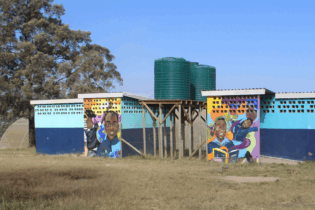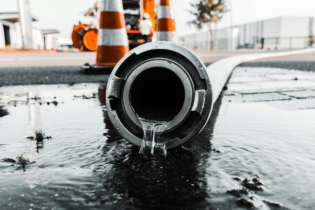The multimillion-rand Western Aqueduct project is back on track following this week’s announcement that Cycad Pipelines has been selected as the successful contractor for the initial 7 km sector of the water pipeline between Inchanga Station and Alverstone Neck. Construction commenced in the first half of 2013.
The entire 55 km second phase of the much needed Western Aqueduct begins at Inchanga Station and ends at Ntuzuma, and includes two branch pipelines to Tshelimnyama and Mount Moriah. It is expected to significantly strengthen the capacity of bulk water supply to the western regions of eThekwini, injecting up to 400 Mℓ/d. At the same time, it will ultimately boost much needed water supplies to the north of Durban. The head of eThekwini Water and Sanitation (EWS), Neil Macleod, says EWS has unbundled the 55 km pipeline project into six individual projects that will be rolled out over a seven-year period. It was initially intended to be constructed as a single, large contract but has been dogged by delays. The second sector, covering the stretch between Alverstone Neck and Ashley Drive in Kloof and worth a similar value, has been released for tendering purposes.The eThekwini Municipality called for expressions of interest last year and 16 contractors were selected for two different panels – one comprising companies qualified to deal with large diameter pipes and the other capable of working with pipes of a smaller diameter. Cycad Pipelines won this tender on a competitive bid against the other pre-qualified contractors in the large diameter pipe category. The rest of the contracts will be competitively tendered between the pre-qualified contractors making up the two panels.
“Further delays to this project will have detrimental consequences for Durban as current water supply infrastructure is unable to cope with the forecast future water demand. In addition to large commercial and industrial projects on the drawing board, the city’s population is expected to increase by at least 20% by 2030,” Macleod warns. Commissioned in June 2011, the first phase of the Western Aqueduct covered 19 km from Umlaas Road to Inchanga Station. Lessons learnt from that project will further refine the environmental rehabilitation for the second phase, he states.




